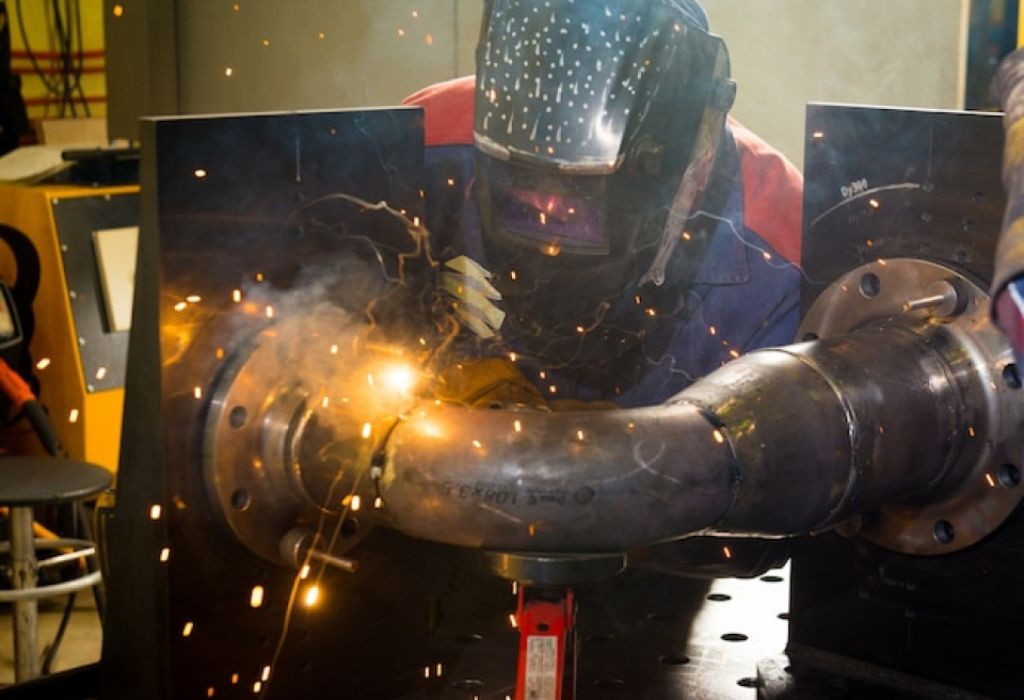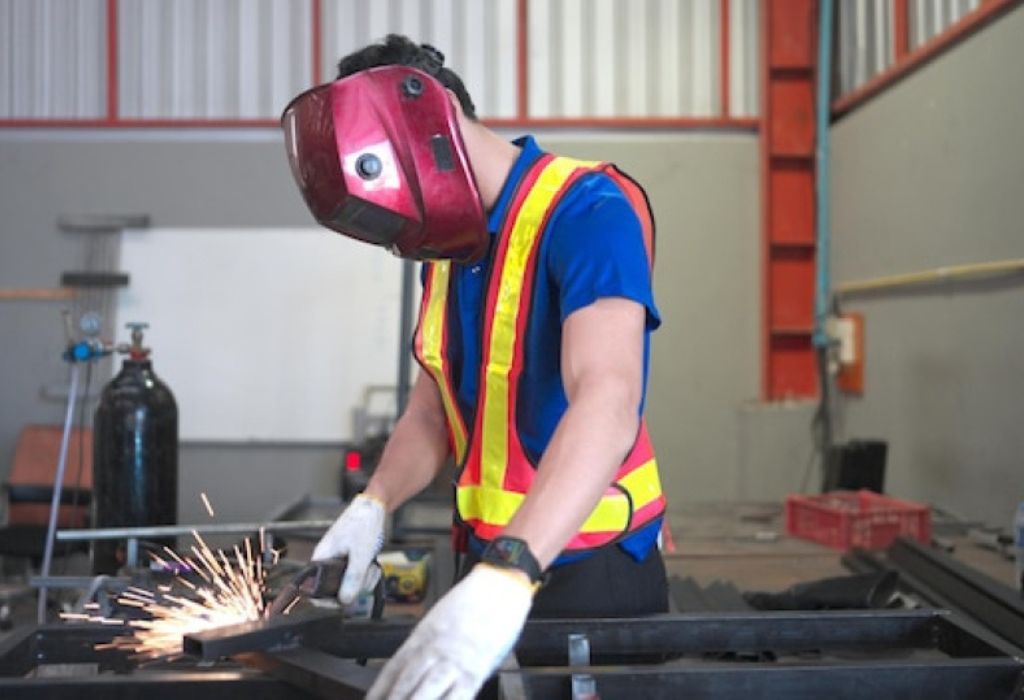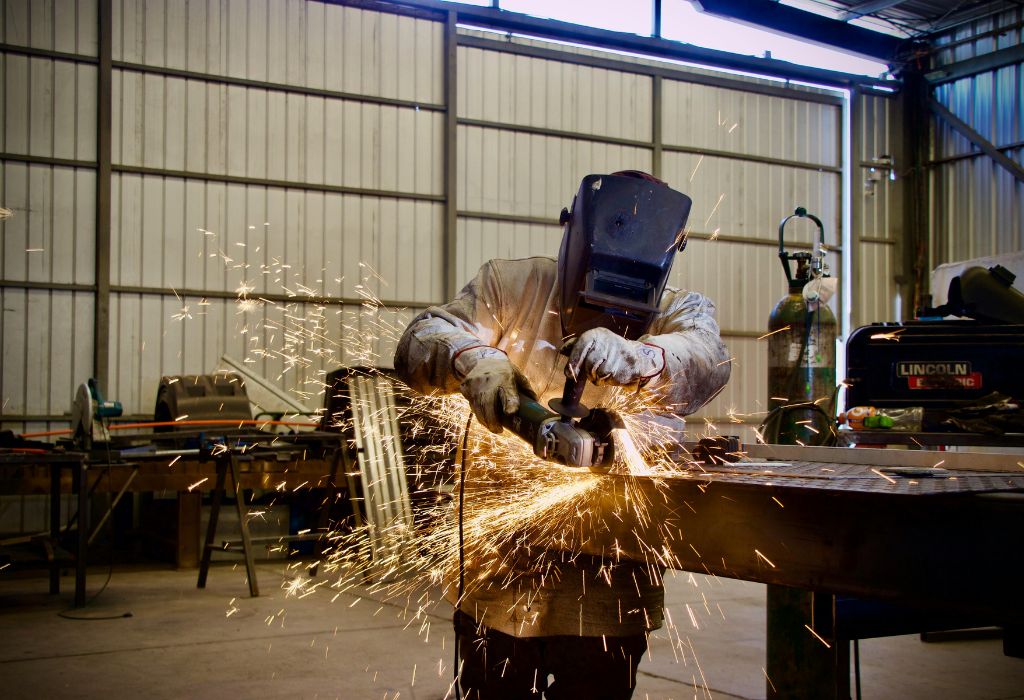The glow of molten metal and the crackle of welding arcs capture the imagination of many who want to join the trade.
But one question continues to rise above the sparks: do you need certification to be a welder?
The answer is not always simple, and it can vary depending on the type of work and the industry.
Some employers may welcome beginners with little to no certification, focusing instead on skill learned through practice.
Others, particularly those in high-risk industries like oil, gas, or construction, demand certification before you even pick up the torch.
According to the U.S. Bureau of Labor Statistics, welding is projected to add more than 40,000 new jobs per year through 2032, and many of these positions will require certified expertise source.
Certification is not just a piece of paper. It is proof that you can work under a recognized welding code, follow procedures, and ensure structural safety.
Without it, your opportunities may be limited to small repair shops or short-term work. With it, you open the door to union jobs, large-scale projects, and better pay.
In this blog, we’ll break down whether certification is mandatory, explore the main types of certifications, examine their impact on pay and career growth, and help you decide if pursuing certification in 2025 is worth it.
Do Welders Need Certification?

Not every welder begins their career with certification, but many find that it becomes essential sooner rather than later. Certification is not usually a legal requirement, but it is a practical one in industries where safety and compliance are top priorities.
Small workshops or custom fabrication shops may hire uncertified welders, focusing on hands-on ability instead. However, large companies, government contracts, and infrastructure projects often require certified welders to meet strict codes. These standards protect the public, the employer, and the welder from the risks of faulty work.
For example, a welder without certification may fix a gate, build furniture, or do small farm repairs. But to weld bridges, ships, pipelines, or pressure vessels, certification is a baseline requirement. It is how employers ensure that welders can produce work that withstands inspection and stress tests.
Ultimately, while you can get by without certification in some roles, a lack of credentials can limit your job options and prevent you from entering the most lucrative sectors of the trade.
Questions and Answers
Is certification legally required?
No, in most regions certification is not mandated by law, but employers commonly require it.
Can you get welding jobs without certification?
Yes, but they are usually entry-level roles with lower pay and fewer advancement opportunities.
Which industries require certification most often?
Construction, oil and gas, shipbuilding, nuclear, and aerospace industries.
Does certification affect pay?
Yes, certified welders often earn 20–30% more than uncertified welders.
Do certifications need renewal?
Yes, most certifications expire in 6 months to 3 years and require renewal tests.
Types of Welding Certifications in 2025
Welding certifications are not one-size-fits-all. They are designed to test very specific abilities, often tied to an industry’s needs. Choosing the right certification is critical for career direction.
The most common certification is through the American Welding Society (AWS). The AWS Certified Welder program covers multiple welding processes such as MIG, TIG, and stick. This credential is widely recognized and often required for entry-level positions.
For more advanced roles, especially those in high-pressure systems, the ASME Section IX certification is vital. This certification is mandatory in industries like oil refining, nuclear energy, and power generation. Similarly, welders working on pipelines pursue the API 1104 certification, which ensures they can handle the unique stresses of pipeline welding.
International welders may need ISO 9606 in Europe or CSA W47.1 in Canada. With globalization, holding international credentials is increasingly valuable in 2025, as welders look for opportunities abroad.
Questions and Answers
What is the easiest certification for beginners?
The AWS Certified Welder test is usually the most accessible starting point.
Which certification leads to the highest pay?
Pipeline (API 1104) and ASME certifications typically command the top wages.
Do certifications transfer between countries?
Not always. Some are region-specific, but AWS and ISO are widely recognized.
Do welders need multiple certifications?
Yes, many welders carry multiple certifications to qualify for different projects.
How long does certification take?
It can take weeks or months depending on the process and training program.
Why Certification Matters for Career Growth and Salary
Certification has a direct link to both career growth and income potential. Employers trust certified welders because they’ve proven their ability through testing. This makes certified welders more competitive when applying for jobs.
Pay is also directly impacted by certification. On average, certified welders earn more, with reports suggesting a 20–30% salary increase compared to uncertified welders. Specialized certifications, such as pipeline or aerospace, can boost pay even higher.
Career growth is another benefit. With certification, welders are not limited to small repair jobs. Instead, they can move into supervisory roles, quality control, or inspection positions. Certification becomes a stepping stone to long-term stability and higher-level responsibilities.
In 2025, as industries continue to enforce stricter safety standards, certification is becoming more of a requirement than an option. Without it, welders may find themselves left behind.
Questions and Answers
Does certification guarantee a job?
Not always, but it greatly improves your chances in competitive industries.
Can uncertified welders still make good money?
Yes, but they typically cap out at lower wages compared to certified peers.
Is certification worth the cost?
Yes, because higher-paying jobs often require it, making it a long-term investment.
Can certification help with promotions?
Yes, many employers only promote certified welders to leadership or inspection roles.
Is certification becoming more common in 2025?
Yes, industries are raising standards, making certification more essential.
How to Get Welding Certification

The process of getting certified is structured but achievable for motivated welders. It usually begins with training in a welding school or technical program. These programs teach the fundamentals and prepare welders for specific certification exams.
The certification test itself often involves welding under exam conditions. For example, the AWS test requires welders to produce a weld that is inspected visually and sometimes tested with X-rays or stress tests. Passing these tests proves that the welder can perform under real job conditions.
Costs vary depending on the test and program. On average, certification can cost a few hundred dollars to a few thousand if specialized training is needed. Many employers cover this cost for employees who are preparing for company projects.
Renewals are another factor. Most certifications need to be renewed every 6 months to 3 years. This ensures that welders maintain their skills and can adapt to new standards.
Questions and Answers
How much does certification cost?
Anywhere from $300 to $3,000 depending on training and testing.
Do employers pay for certification?
Yes, many employers sponsor employees for certifications.
How difficult are certification exams?
They are challenging but manageable with proper training.
Can you self-study for certification?
Yes, but most welders benefit from hands-on classes before testing.
How often do you need to renew?
Most certifications require renewal every 6 months to 3 years.
Conclusion
So, do you need certification to be a welder in 2025? The answer depends on where you want your career to go. While it is not always legally required, certification is often the key to higher pay, job security, and access to industries where quality and safety are non-negotiable.
With certification, welders can move beyond entry-level roles, access union positions, and pursue global opportunities. Without it, options remain limited to small-scale or low-paying work.
In today’s job market, where industries demand accountability and precision, certification is no longer just a choice—it’s a competitive advantage. If you’re serious about building a long-term welding career, pursuing certification is one of the best investments you can make.

I’m Darrell Julian, the founder, lead writer, and hands-on welding enthusiast behind ArcWeldingPro.com. With more than 15 years of real-world welding experience, I created this platform to share what I’ve learned in the field, in the shop, and in the heat of the arc.


